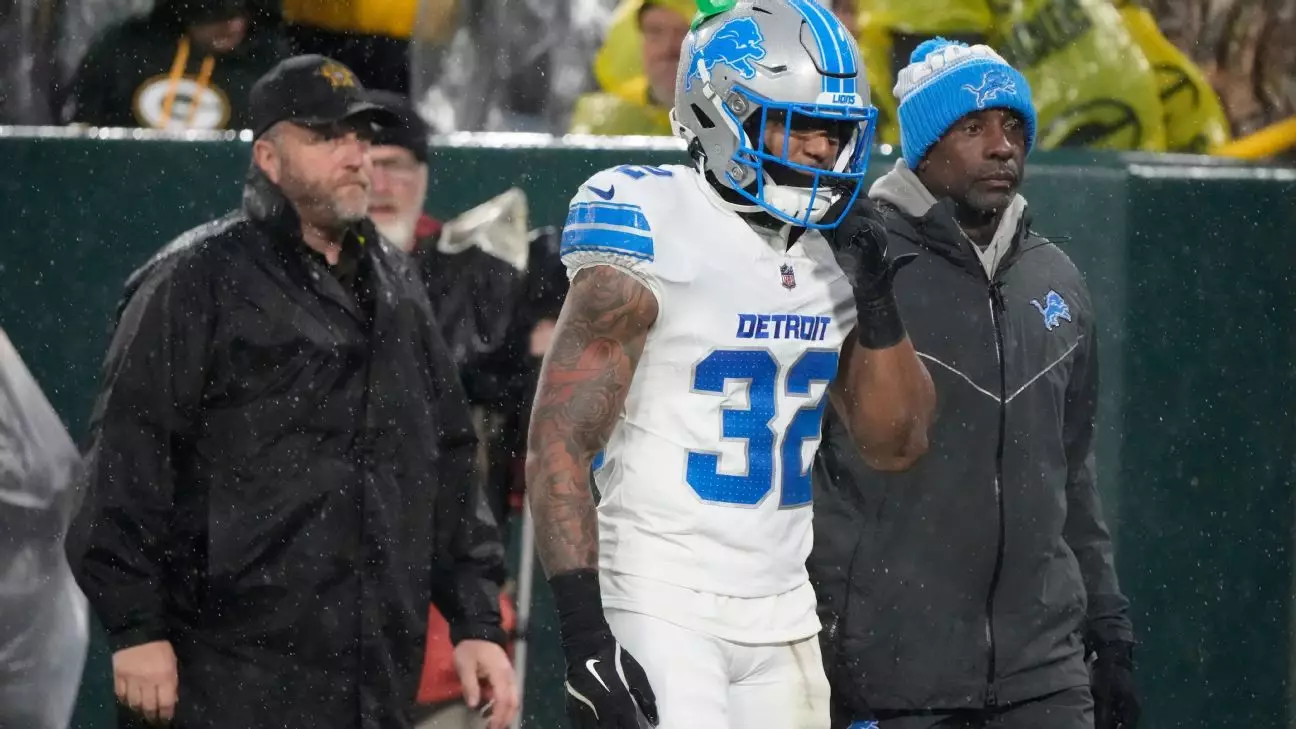In an era where sportsmanship and professionalism are paramount, the actions of Detroit Lions’ second-year cornerback Brian Branch during a recent game stirred significant controversy. After an impactful yet miscalculated play against the Green Bay Packers, Branch found himself on the wrong side of officiating, leading to his ejection in a match that the Lions ultimately won 24-14. While the incident itself is a point of discussion, it opens the floor for a broader conversation about accountability and personal growth within the demanding environment of professional sports.
Branch was penalized for a late hit on Packers receiver Bo Melton, a decision that sparked immediate reaction not only from fans present at Lambeau Field but also within the Lions’ organization. The rookie’s frustration boiled over when he displayed an inappropriate gesture toward the crowd—a move that elicited yet another penalty for unsportsmanlike conduct. While these actions have consequences, Branch’s ability to reflect on his behavior exemplifies a critical aspect of sports: learning from one’s mistakes.
In the aftermath of the incident, Branch quickly recognized the need for introspection. His subsequent apology underscored a willingness to embrace responsibility rather than evade it. “That was just the heat of the moment for me,” he remarked, expressing discomfort with how fans might perceive him. This candid acknowledgment points to an essential trait in athletes: the capacity to evaluate their conduct and grow from it.
As Lions’ defensive assistant Jim O’Neil suggested, coaching staff will emphasize the need for Branch to refine his targeting technique to lower potential risk during tackles. This reinforces the notion that pain points—whether from disciplinary action or performance-related scrutiny—can serve as substantial learning opportunities for athletes. Branch’s commitment to adjusting his game reflects a maturation process imperative for the evolution of a young player navigating the complexities of life in the NFL.
Similarly, another Lion, wide receiver Jameson Williams, faced a challenging episode with his recent two-game suspension due to violating the NFL’s performance-enhancing substances policy. Just like Branch, Williams has been thrust into the limelight and the ample scrutiny that comes with it. After serving his time on the sidelines, he is now keen to reinsert himself into the game. Coach Dan Campbell’s readiness to reintegrate him quickly emphasizes the faith that the coaching staff has in the young receiver’s talent and potential for growth.
Williams acknowledged the support he received from Campbell during an undeniably tough period, stating, “It means a lot. That’s my head coach, and I’ve been through a lot playing under him.” His statement reveals the importance of trust and understanding between player and coach, creating an environment where players can thrive. This is especially significant during times of personal challenge, as it showcases Campbell’s commitment to fostering resilience within his squad.
Moreover, Williams articulated an essential lesson learned during his suspension: the importance of making better choices in high-pressure situations. Rather than shying away from the details of his punishment, he has chosen to focus on his growth moving forward. His determination to channel his experiences into a positive narrative illustrates a significant level of emotional intelligence that can greatly influence how players navigate adversity.
Branch and Williams’ respective experiences serve as vital case studies in the greater framework of team culture and the importance of nurturing resilience within the organization. As they confront their unique challenges, they are not only growing as individuals but also contributing to a culture of accountability and continuous improvement within the Lions’ locker room.
It is evident that the path to success in professional sports is rife with obstacles. Whether it is maintaining discipline on the field or returning from a suspension, players are continuously tested. However, the ability to recognize one’s faults, seek guidance, and actively work toward self-improvement is what sets commendable athletes apart. Both Branch and Williams have begun to take the necessary steps in addressing their respective situations, and their journeys will undoubtedly resonate with many sports enthusiasts who appreciate the human elements behind the game.


Leave a Reply